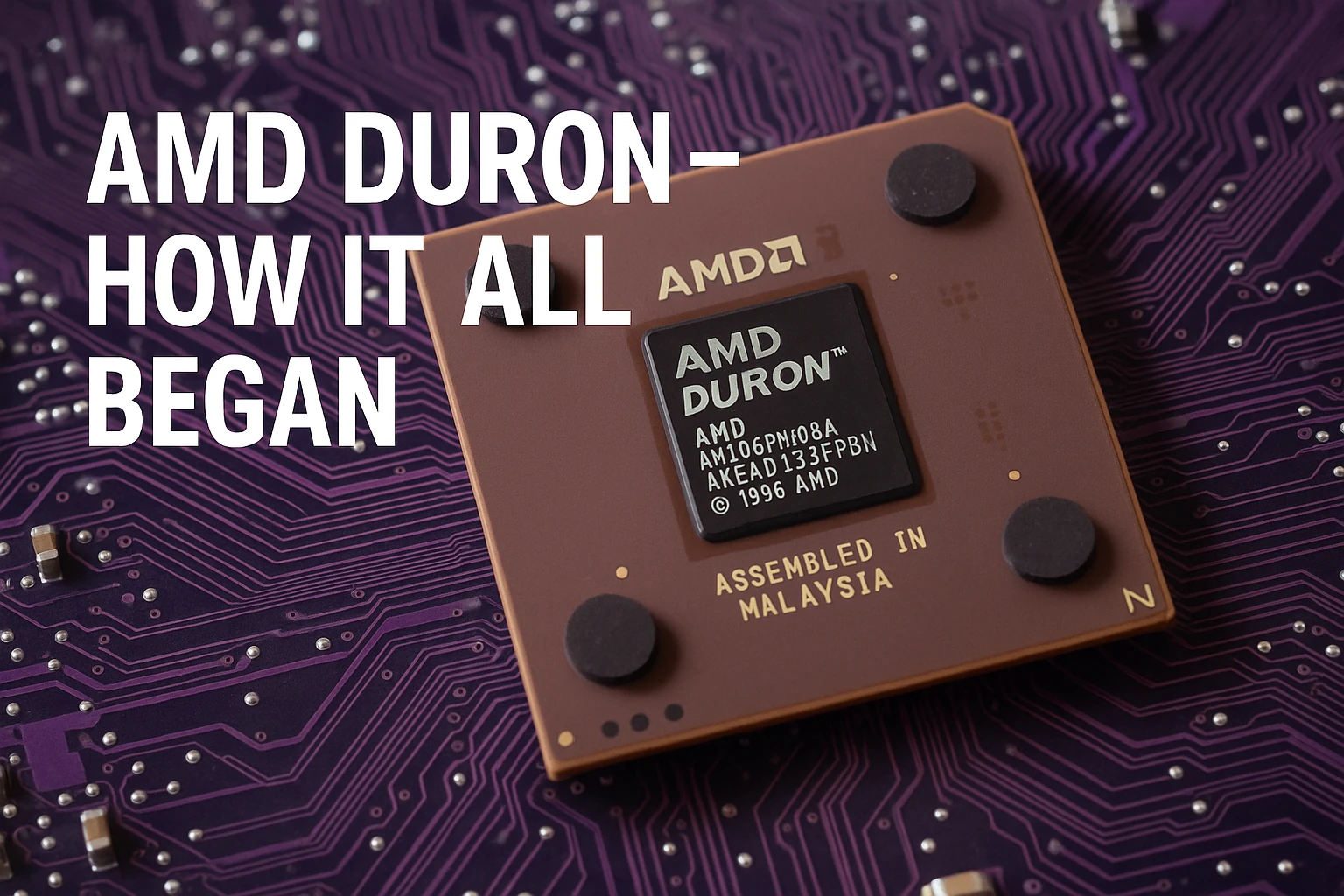AMD Duron – How It All Began
Introduction
In the early 2000s, AMD’s Duron processor became the budget-friendly hero of PC builders, offering impressive performance at a fraction of the cost of Intel’s Celeron. Designed as a stripped-down version of the Athlon (Thunderbird), the Duron carved out its place in computing history as the "value king" of its time.

1. The Birth of Duron (2000)
Launched in June 2000, the Duron was AMD’s answer to Intel’s Celeron in the low-cost CPU market.
Key Features:
- Based on Thunderbird Core – Same architecture as the high-end Athlon but with less L2 cache (64KB vs. 256KB).
- Socket A (Socket 462) – Compatible with the same motherboards as Athlon.
- Clock Speeds – Ranged from 600 MHz to 1.8 GHz (later models).
- Price – Often 50-60% cheaper than Intel’s equivalent Celeron.
Why It Mattered:
- Better Performance per Dollar – Despite less cache, Duron often outperformed Intel’s Celeron in real-world tasks.
- Overclocking Beast – Many Durons could reach Athlon-level speeds with proper cooling.
2. The Spitfire & Morgan Cores
Spitfire (2000)
- First Duron core, based on 180nm process.
- 600-950 MHz models.
- 64KB L2 cache, 100 MHz FSB.
Morgan (2001)
- Improved 130nm process.
- Added SSE support (previously only in Athlon XP).
- 1.0-1.8 GHz models.
3. Duron vs. Intel Celeron: The Budget War
| Feature | AMD Duron | Intel Celeron (Coppermine/Tualatin) |
|---|---|---|
| Architecture | Thunderbird-based | P6-based (Pentium III) |
| L2 Cache | 64KB | 128KB (later 256KB in Tualatin) |
| FSB | 100-133 MHz | 66-100 MHz |
| Performance | Often faster in gaming & apps | Weaker IPC but better cache |
Result: Gamers and budget builders preferred Duron for its raw speed, while Intel’s Celeron was seen as more stable for office use.
4. The Legacy of Duron
- Paved the way for Sempron – AMD’s next-gen budget CPU.
- Proved that cache isn’t everything – A well-designed core could outperform larger-cache rivals.
- A cult favorite among overclockers – Many Durons could hit 1.4 GHz+ with air cooling.
Where Are They Now?
- Discontinued in 2004, replaced by Sempron.
- Still remembered as one of the best budget CPUs of its era.
Conclusion
The AMD Duron was a game-changer in the budget CPU market, proving that AMD could compete with Intel not just in performance but also in value. Its legacy lives on in today’s Ryzen 3 and Athlon budget processors.
Tags: #AMD #Duron #BudgetCPU #RetroGaming
The author may have used AI technologies to create the article, and it might contain inaccuracies or errors.